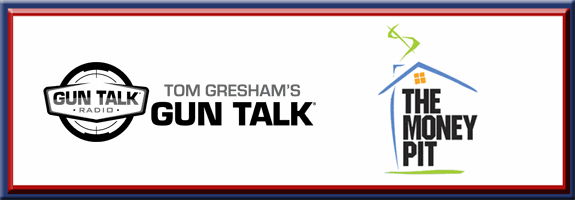By Michael Berry
Host, The Michael Berry Show
KTRH, Houston – iHeartRadio
Independent Syndication
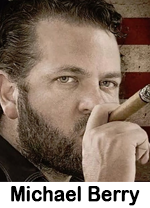 Growing up in a small town, “word of mouth” was the most powerful form of advertising. It could make – or break – a business. Malcolm Gladwell’s important Tipping Point book explained that movements, pandemics, and other things that “catch on” do so because of the influence of “connectors” – people who are asked for their opinion. Today, the media world likes to call them “influencers.”
Growing up in a small town, “word of mouth” was the most powerful form of advertising. It could make – or break – a business. Malcolm Gladwell’s important Tipping Point book explained that movements, pandemics, and other things that “catch on” do so because of the influence of “connectors” – people who are asked for their opinion. Today, the media world likes to call them “influencers.”
For 17 years, I’ve entertained listeners on the radio and on podcast. Our show has built what many in the industry tell me is an impressive business model. Like Gladwell, I created our own vocabulary and I am strident in enforcing the use of it. Because words matter. I explain to companies that they are our “sponsors,” not “advertisers.” I explain that they put their name behind our show, just as I do for them. In a commercial break stop-set that will be several “commercials” for “advertisers,” but only a couple of my “endorsements.” I don’t speak for a company unless I believe in what they do and how they do it. Likewise, I encourage listeners to send me feedback on their experience with my show’s sponsors. I forward those to the sponsors, either with a request that they address the shortcoming in the service or an attaboy for a job well done.
Listeners tune in to radio, particularly talk radio, to hear the opinions of the host. The host’s opinion matters. If he shares his opinion on movies he likes, foods he enjoys, political candidates he supports, that opinion can affect what the audience does. It is also true that – if his recommendation is trusted by the listener – it can affect the choices the audience makes when they buy something or hire someone to perform a service. But it has to be an “endorsement.”
The radio industry, for many, many years, failed to recognize the value and power of an endorsement. Sellers would sell advertising to clients and get the on-air talent to read the copy points the client (or agency) wrote. Often listlessly, just reading. That is not an endorsement. It is not a host suggesting to his audience where he would personally buy a new door for his home, or take his wife for dinner. If, however, the “read” (a term that reflects that the host is simply reading words someone else wrote) were instead an endorsement, he wouldn’t need all those details. Instead, with just the name of the company, and the owner, and the phone number, as well as what category they are in, he would be able to speak for 30 seconds about why that business is special, why he would (and hopefully has already) use them.
An endorsement is a stamp of approval. It says you believe in someone or something. If an endorsement is really an endorsement, it doesn’t need new copy points to be “freshened up.” It doesn’t include discount offers, seasonal sales, “get in quick before they run out” scares, or other silly tricks Americans long ago learned to ignore. Using that language kills credibility. If I ask you where I should buy my car, and you have a dealer you believe in, you’ll refer me to them, and, if you really like them, call them yourself and ask them to take care of me. “Hook me up” as the kids say. I’m not going anywhere else after an endorsement like that.
Radio (and podcast) has a big future, because of the connection audiences have with hosts. Why abuse that connection? Why cheapen it? Sales reps should understand that and make it part of their pitch. My best sales reps literally dial up companies in industries I identify and start with the question, “Do you listen to The Michael Berry Show?” If the answer is no, I don’t want them as sponsors. I want folks who understand why I’m controversial, why my audience listeners, what my values are.
Radio and podcast’s future is dependent on a sound business model that understands what makes us special, unique, and better than other forms of media.
Here is my list of suggestions to sellers and hosts, in hopes of facilitating better results for show sponsors:
— Sellers should never pitch a client without asking the talent first.
— Talent should not endorse a company without researching and approving them.
— Talent should tell sellers what sorts of things they WANT to endorse. Guns, cigars, home improvement, cars, medical. The best endorsement is something the talent will use himself. An avid gun owner is going to present a very compelling (and effective/profitable) endorsement for a gun range he visits once a week. Look at how weight loss sponsors have profited when the host follows their program and endorses it on air.
— If a sponsor isn’t committed to a yearlong relationship, don’t do it. It ruins credibility to change the endorsement inside the same category. Again, credibility is everything.
— Talent should develop personal relationships with sponsors. They can help listeners this way and the sponsors become show content.
— The value of talent to the station is far more than just ratings. Half my audience is 55+, so the 18-34 or 25-54 rating is less useful to me. But when show sponsors stay on air for 10 or more years, it is a ringing endorsement that what we do works. They vote with their dollars. The whole point of ratings was to show agencies how many people listened, in hopes that that vast listening audience would respond to the commercials they hear, thus monetizing the show, right? Why not go straight to the “dollars in (from the sponsor), dollars out (listeners spending money with sponsors)” model? Show sponsors who get tangible results from their partnership with talent don’t cancel their buy.
— Openly discuss how much money a talent brings into the station. The programming side of radio loves to talk about things that don’t generate dollars, while the sales side is often disconnected from the actual product they are selling. Fix that.
Michael Berry is a longtime, high-ranking member of the TALKERS Heavy Hundred. He’s heard daily on KTRH, Houston and across the country on his own independent network. Michael Berry can be emailed at michael@michaelberryshow.com.
Share this with your network
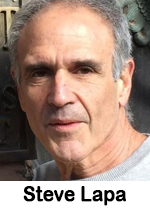 What happens when the world-wide leader is for sale? When they stopped spanning the globe 25 years ago, I thought the budget cut would help the leader. I could still hear the great Jim McKay describing the agony as Vinko Bogataj rolled down that ski slope in utter defeat. There were so many different images of the thrill of victory, but for most of the 37 seasons of “Wide World of Sports,” the agony of defeat was forever connected to that helpless Yugoslavian skier.
What happens when the world-wide leader is for sale? When they stopped spanning the globe 25 years ago, I thought the budget cut would help the leader. I could still hear the great Jim McKay describing the agony as Vinko Bogataj rolled down that ski slope in utter defeat. There were so many different images of the thrill of victory, but for most of the 37 seasons of “Wide World of Sports,” the agony of defeat was forever connected to that helpless Yugoslavian skier.


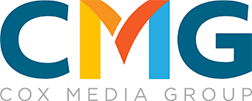 sales leadership and has produced consistent share growth and exceeded revenue goals across multiple CMG markets.” CMG Radio EVP Rob Babin comments, “Jodi is an outstanding leader and strategic thinker, and she’s passionate about delivering results for our clients. She has a deep understanding of our business and our clients, and I’m confident she’ll continue to deliver exceptional results while leading our national sales team.” Rainey says, “I’m honored to have the opportunity to work with an already successful team that includes talented and experienced leaders. We’ll continue to be laser-focused on delivering results for our clients, creating growth for CMG, and positively impacting the listeners and communities across our markets.”
sales leadership and has produced consistent share growth and exceeded revenue goals across multiple CMG markets.” CMG Radio EVP Rob Babin comments, “Jodi is an outstanding leader and strategic thinker, and she’s passionate about delivering results for our clients. She has a deep understanding of our business and our clients, and I’m confident she’ll continue to deliver exceptional results while leading our national sales team.” Rainey says, “I’m honored to have the opportunity to work with an already successful team that includes talented and experienced leaders. We’ll continue to be laser-focused on delivering results for our clients, creating growth for CMG, and positively impacting the listeners and communities across our markets.”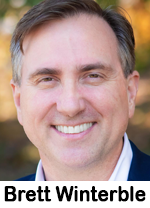 pandemic. His expertise in national and global affairs was immediately recognized and appreciated by the WBT audience, but it was his fair analysis of the day’s news and his whole-hearted support of the Charlotte community in those difficult times that allowed him to become a welcomed part of the lives of the audience.” Winterble comments, “From the moment I walked into the legendary WBT Radio it felt like home. I am so
pandemic. His expertise in national and global affairs was immediately recognized and appreciated by the WBT audience, but it was his fair analysis of the day’s news and his whole-hearted support of the Charlotte community in those difficult times that allowed him to become a welcomed part of the lives of the audience.” Winterble comments, “From the moment I walked into the legendary WBT Radio it felt like home. I am so  thankful for the welcome and support I received from our clients, listeners, and incredible staff over these past three years. I am truly honored to continue this relationship with the best creators in the business. I am particularly grateful for the support of Urban One/Radio One, and Marsha Landess, Alfred Liggins, David Kantor, Mike Schaefer, and Kraig Kitchin in helping me to realize this professional dream. I can’t wait to see what the future holds for all of us.”
thankful for the welcome and support I received from our clients, listeners, and incredible staff over these past three years. I am truly honored to continue this relationship with the best creators in the business. I am particularly grateful for the support of Urban One/Radio One, and Marsha Landess, Alfred Liggins, David Kantor, Mike Schaefer, and Kraig Kitchin in helping me to realize this professional dream. I can’t wait to see what the future holds for all of us.” Growing up in a small town, “word of mouth” was the most powerful form of advertising. It could make – or break – a business. Malcolm Gladwell’s important Tipping Point book explained that movements, pandemics, and other things that “catch on” do so because of the influence of “connectors” – people who are asked for their opinion. Today, the media world likes to call them “influencers.”
Growing up in a small town, “word of mouth” was the most powerful form of advertising. It could make – or break – a business. Malcolm Gladwell’s important Tipping Point book explained that movements, pandemics, and other things that “catch on” do so because of the influence of “connectors” – people who are asked for their opinion. Today, the media world likes to call them “influencers.”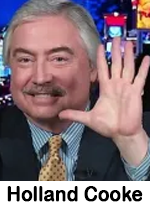 As The Beatles sang, “It’s been a long, cold, lonely winter.” Baseball – even Spring Training while it’s still chilly in March – says “Here Comes the Sun.” That’s what baseball means… to listeners.
As The Beatles sang, “It’s been a long, cold, lonely winter.” Baseball – even Spring Training while it’s still chilly in March – says “Here Comes the Sun.” That’s what baseball means… to listeners.

